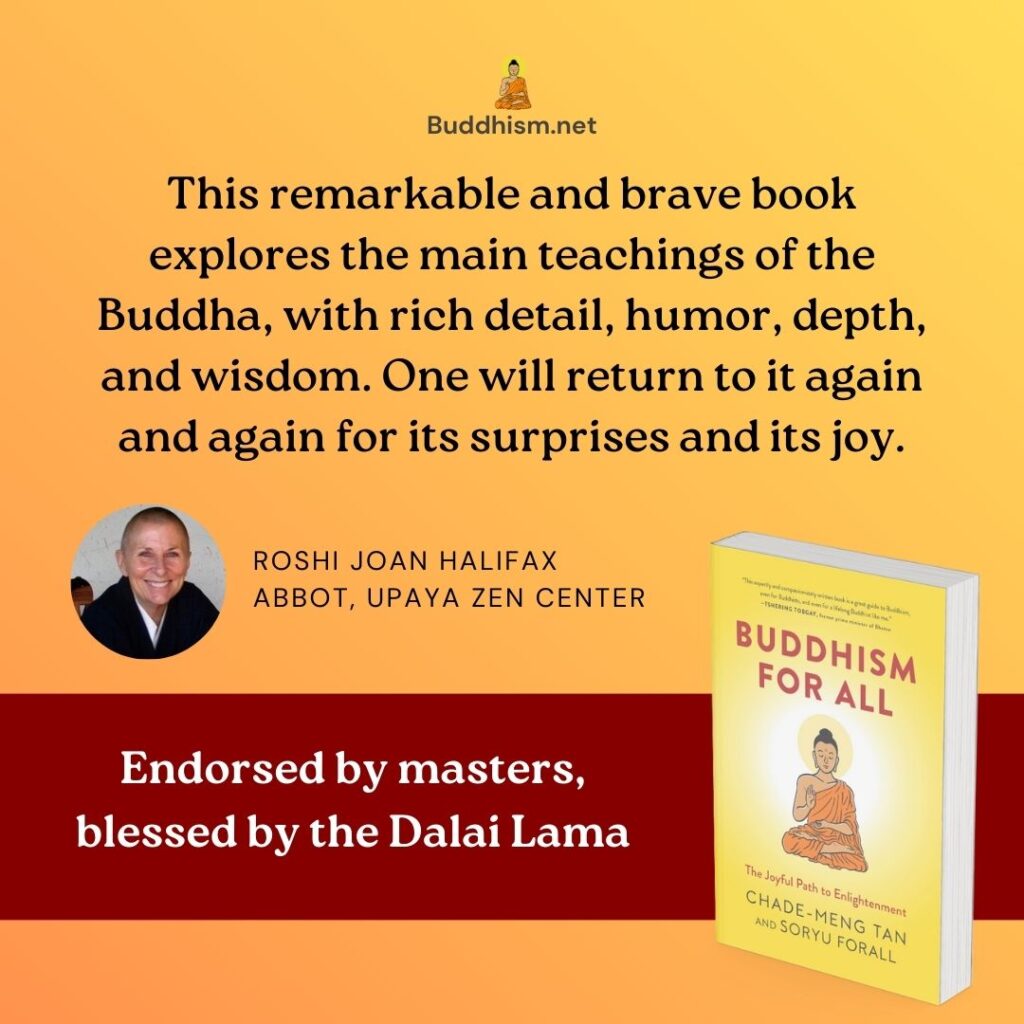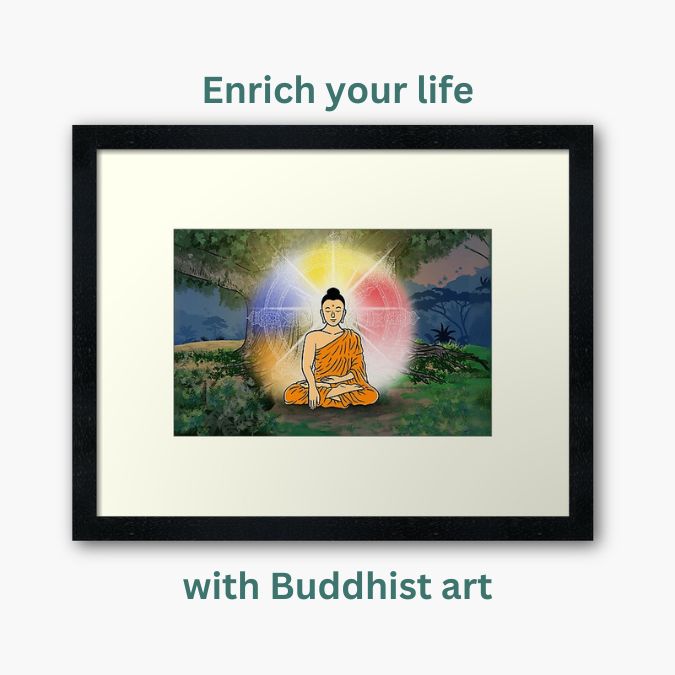
The teaching of karma can be profound, but its central core is surprisingly simple. Karma literally means action. The Buddha gives a clear, concise definition for karma:
It is volition, monks, that I call karma. For having willed, one acts by body, speech or mind.[1]
In other words, karma is volitional action. The most important thing about karma is that all karma has consequences, known as kamma-vipāka, (literally: maturation of action) or kamma-phala (literally: fruit of action). As the Buddha puts it:
Beings are owners of their actions (karma), heirs of their actions; they originate from their actions, are bound to their actions, have their actions as their refuge. It is action that distinguishes beings as inferior and superior.[2]
Soryu made a funny comment, “The basic teaching of karma is that your actions have consequences; that’s it, it’s just what our parents tried to teach us when we were six.”
The Buddha’s definition of karma is straightforward and easy to understand. The part that is hard to grasp is the result of karma (kamma-vipāka). There are just too many hidden variables. Furthermore, results of your karma can interact amongst themselves, thus creating new complexity. For example, when you have a lot of good karma, it can render a trifling of bad karma ineffective. The Buddha compares it to putting a lump of salt in a bowl of water verses in a large, clean river. The same amount of salt can render the bowl of water too salty to drink, but does not do that to the river.[3] In the same way, an evil person may suffer a lot from a trifling of bad karma, but the exact same trifling of bad karma may have very little effect on a highly virtuous person. (Unfortunately for optimization-eager engineers, the Buddha did not teach a mathematical formula to calculate how much virtue versus how much bad karma.)
Even more confounding for us mere mortals is that the results of karma can happen across lifetimes. The Buddha said, “The result of karma is threefold: to be experienced in this very life, or in the next rebirth, or on some subsequent occasion.”[4] For those of us who are unable to see one or more of our previous lifetimes, it severely limits our data-collection ability for fully understanding karma. Even seeing some number of previous lifetimes is not enough. The Buddha said there were yogis who developed the ability to see past lives, but since some karma does not ripen until many lifetimes later, these yogis got confused.[5]
For those reasons, the Buddha said that only a fully enlightened one can fully understand the result of karma, and for the rest of us, it is an “inconceivable matter” and trying to conceive it would “reap madness or frustration.”[6]
You might think that the Buddha’s teaching on karma was something that was already popularly taken for granted in his time and place, but no, that is incorrect. Contemporary with the Buddha in ancient India was a group of famous teachers who taught an entire spectrum of teachings relating to karma.[7]
For example, Pūraṇa Kassapa taught that there is no such thing as morality. He said if one mutilates, tortures, harms, oppresses, murders, steals, or lies, one does no evil, and even if one were to go on a mass-murder rampage and “reduce all the living beings on this earth to a single pile of flesh”, one still does no evil at all. Yeah, what a [insert pejorative epithet].
Makkhali Gosāla taught strict fatalism and denied cause and effect. He said there was no such thing as self-determination, and that “beings are defiled or purified without any cause or condition.”
Ajita Kesakambala taught materialistic annihilationism. He said that we are all only physical material, and that after we die, there is no afterlife at all. Soryu jokes that Ajita was like a modern-day Western thinker, and no, Soryu doesn’t mean it as a compliment.
There were, of course, teachers who taught that the only way to purification was to burn off all your past karma, and the way to do that was by torturing yourself. There were also teachers who taught that volition had no effect on karma, that the same karma was created whether a deed was performed intentionally or unintentionally.
The Buddha did not just conveniently pick up his teachings from the popular culture around him. On the contrary, his teachings courageously rebelled against the popular views of his time, including those of the priestly caste, Brahmanism. His teaching on karma was based on his own deep, careful investigation.
Activities
- Reflect on this post with Angela:
- The teachings of karma are very precious. Imagine if the laws of karma were immediate, nobody would dare to do anything unvirtuous and unwholesome. People act in ways that harm themselves in the long run, because they do not see the immediate effects of their actions. When we do something motivated by greed, anger, or delusion, the end result is always suffering, dukkha.
- Remember, Dhammapada verse 183: “To avoid all evil, to cultivate good, and to purify one’s mind — this is the teaching of the Buddhas”.
- To what extent do you agree with the view of karma as explained in the article?
- Can you find examples of how this teaching is true for you?
References
[1] Aṅguttara Nikāya 6.63.
[2] Majjhima Nikāya 135.
[3] Aṅguttara Nikāya 3.100.
[4] Majjhima Nikāya 135.
[5] Majjhima Nikāya 136.
[6] Aṅguttara Nikāya 4.77.
[7] The teachings of all these teachers are mentioned in Dīgha Nikāya 2.
Featured image by Natalie Tsang.


